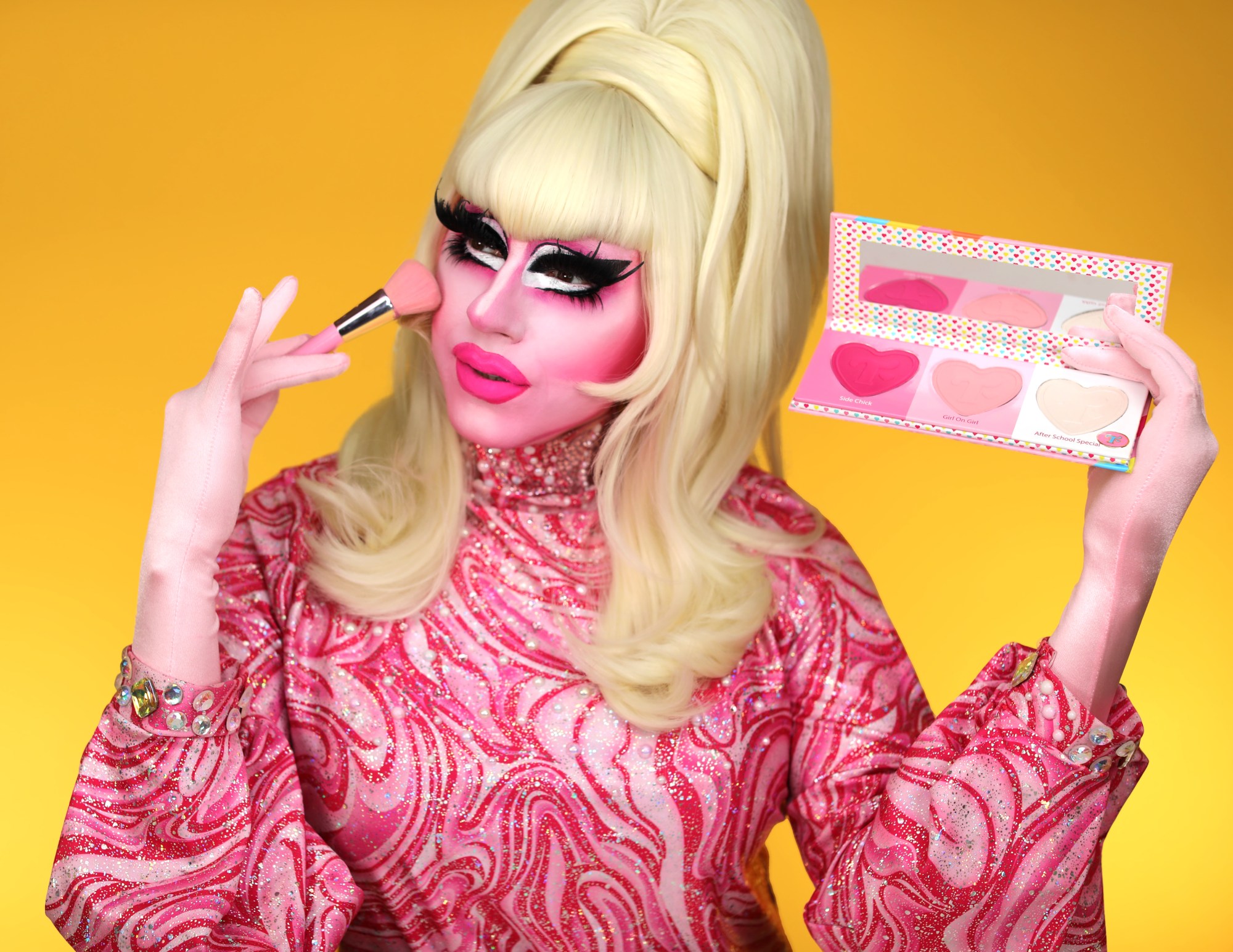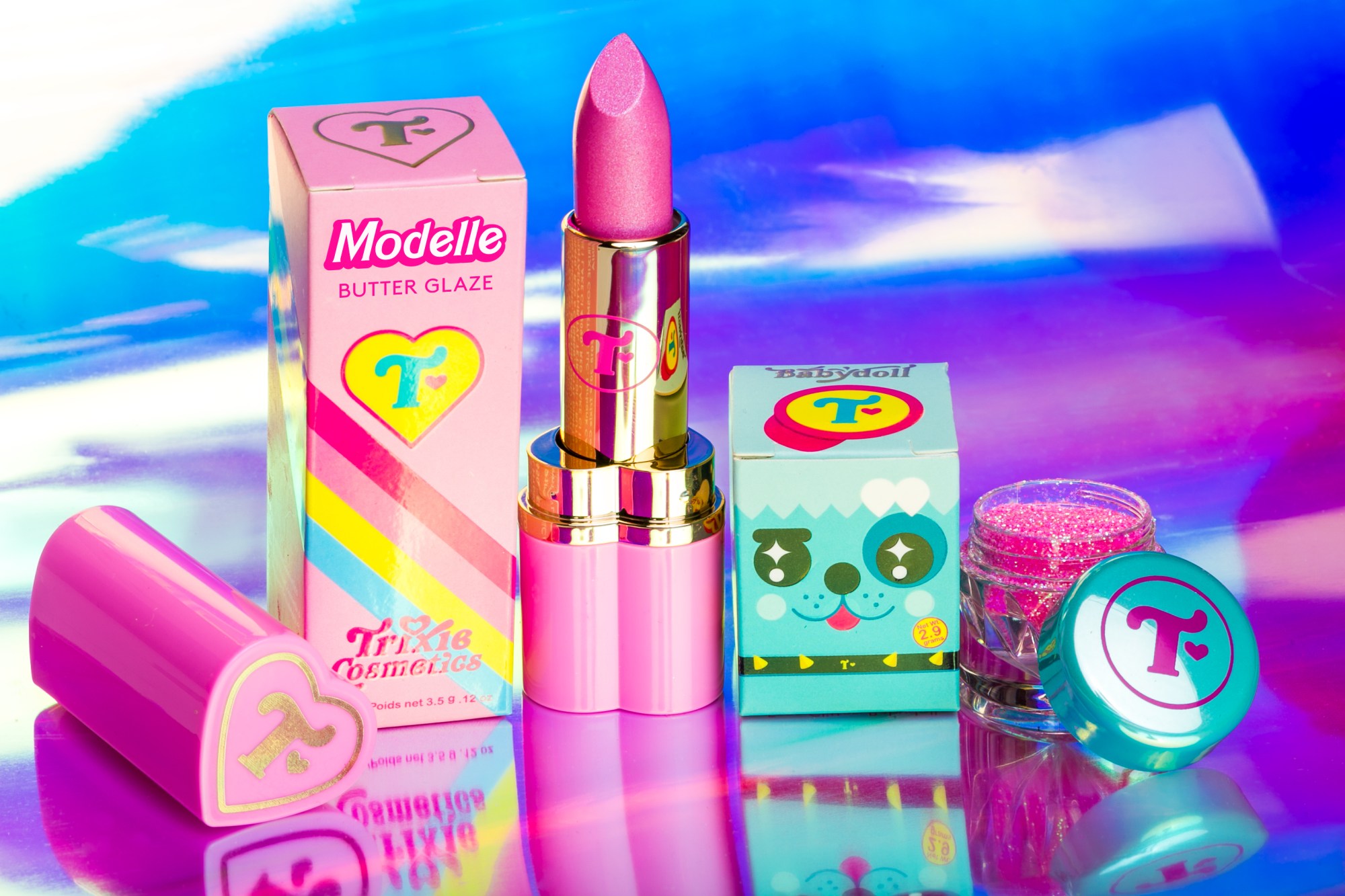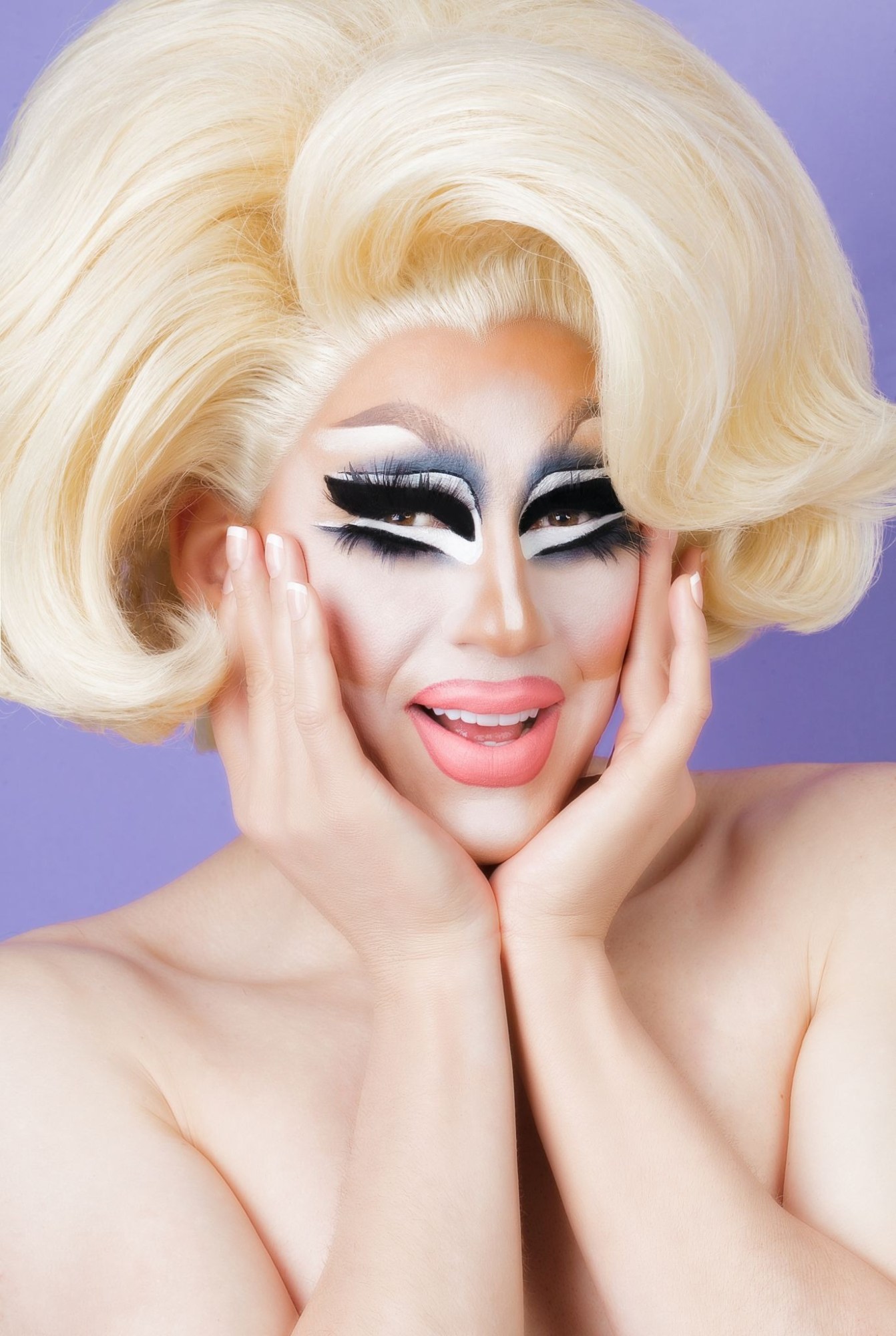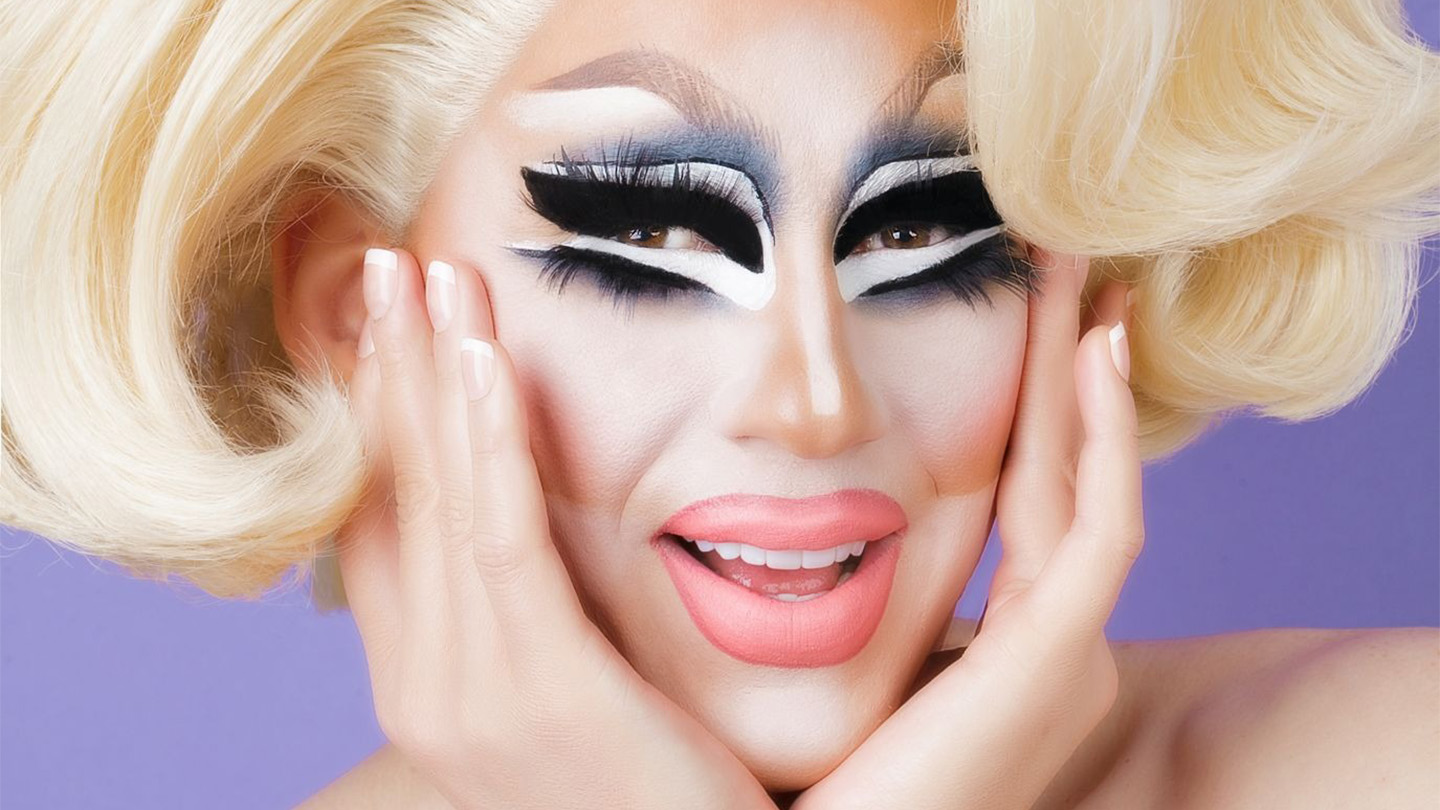While most of us slowed to a depressingly snail-like pace during lockdown, Trixie Mattel was busier than ever. The All Stars winner might have been holed up in her pepto-bismol hued LA home just like the rest of us, but rather than baking sourdough bread and bingewatching The Sopranos, she was launching her beauty brand, Trixie Cosmetics, in earnest, along with filming for her own personal YouTube channel, remotely hosting The Pit Stop and casually writing a New York Times bestseller with friend and collaborator Katya Zamolodchikova to boot.
“It’s just normal to me,” Trixie says over the phone, speaking as she gets into drag for another job directly after our conversation. “I’ve always had multiple jobs, in college I was always the person who had like, two jobs, a boyfriend, was in a play. Most drag queens don’t have the same work ethic as me. I think I honestly prefer to have so many responsibilities. I’m not afraid of hard work.”

It takes a seriously impressive work ethic after all (not to mention balls) to launch a new company in the middle of a pandemic. As thousands of factories shut down across the world and millions of us adjusted to the realities of furlough and working from home, the wheels on the Trixie Cosmetics machine kept turning. Since launching in May 2019, the range has continued to expand, and the latest Insider Collection — which featured lip-glosses and balms in the drag queen’s trademark pastel and glittery pinks — has quickly sold out. Where other industries (sad sandwiches from Pret, for instance) have floundered, DIY beauty and makeup has flourished in lockdown, which is perhaps partially the reason for Trixie Cosmetics continued popularity. “People are still buying make-up,” the performer, known out of drag as Brian Firkus, says. “I mean, just because the world is down, doesn’t mean everything is going to stop. People like escapism you know. Everyone is just looking to escape right now.”
The outfit, too, was pretty small to begin with, so there wasn’t any real room for lockdown-necessitated downsizing. The company started with a lab run by one woman, so social distancing was by definition pretty easy. The decision to keep things small and female led was, Trixie says, deliberate. “When I worked at make-up counters my bosses were always women, always. Mainly older women, mainly women of colour. But the majority of make-up labs and beauty company are run by these old caucasian men, people who have never worn lipstick in their lives.” “I’m aware too,” she adds, “that I enter this room as a white cis male, so you need the input of young people, young women who are wearing and using these products. My number two in my company is a 22-year-old woman, and that’s a huge asset. Because you speak the language, your instincts are going to be right, you can connect with people more authentically.”

As Drag Race, Unhhhh, and drag in general has become more popular, the art form’s audience has become more mainstream with it. Trixie’s main fanbase these days, she says, is made up more of the teenage girls who buy her make-up and watch her on YouTube than the young gay men who watched her first compete on Season 7 of the show. “My audience at this point is mostly straight women,” she says. “I look at my Instagram analytics and it’s like, okay it’s all teenage girls in the UK. But at the same time I don’t like to generalise.”
“Admittedly, I have a love affair with girls and women, especially young women,” Trixie adds. “I’m making things for girls who are getting to that age where they really want to play with makeup, or the moms who wear make-up at home, the babies who just want to have that drag queen moment in their make-up bag, even if all they’re buying is a brown eyeshadow.”
The appreciation of the everyday, a woman, man or person who perhaps doesn’t need Trixie’s level of “paint for the back row, or the cheque cashing place across the street” stage make-up, permeates the most recent release from Trixie Cosmetics. While they’re glitzy and bright and fun, they’re also made with the average consumer in mind, who probably learned how to apply their make-up on TikTok and doesn’t spend half their paycheck on cosmetics. They reflect the changing, modern ideals of what we think of when we define “beauty”, something that’s become more tied to individuality and expression than its past didactic demands for perfection. “It’s a bit more about uniqueness now,” Trixie says on beauty. “We value what makes you different”

“I mean, I look crazy,” she admits, after a brief pause to apply her own make-up. “But the average person buying my make-up doesn’t look like me. We wanted to give people the feeling of being daring, but with products that are super approachable, super wearable. Everybody uses things differently, so you’re not selling make-up, you’re selling a story. Everybody’s style is different. And if we’re putting out a product, how are all those different types of people going to incorporate that product? How are we going to see two men or women wearing the same product and see it in totally different ways?”
“I never create things to tell people what to do with it. Because I’m a drag queen we don’t we don’t we never follow rules with makeup. I love imagination. I love people. You know, cheating the system. I will create that every single day.”


